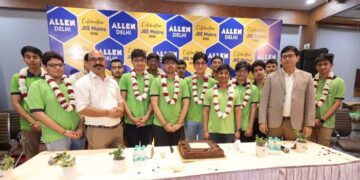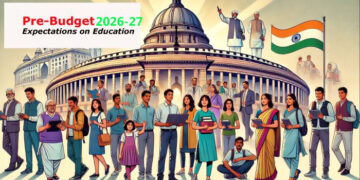By Shammi Manik, CEO of New Saraswati House
 For a culturally diverse country like India, there is a growing need for high quality education material in various regional languages to ensure that education becomes more inclusive and in turn create equitable learning opportunities for all students. Apart from these, cultural sensitivity in education ensures enhanced credibility, increased accessibility, a broader audience reach, an improved user experience, and great competitive advantage.
For a culturally diverse country like India, there is a growing need for high quality education material in various regional languages to ensure that education becomes more inclusive and in turn create equitable learning opportunities for all students. Apart from these, cultural sensitivity in education ensures enhanced credibility, increased accessibility, a broader audience reach, an improved user experience, and great competitive advantage.
With schools pan India offering one or more Indian language for students to take up as part of their studies, the key ways in which cultural sensitivity can be incorporated is through quality, and multilingual content that would seal the gap between children from different socio-economic backgrounds and/or geographic locations.
Effective SWOT analysis and student feedback mechanisms are the need of the hour so that the evaluation and assessment can be used to bridge the gaps in learning. Designing and using multilingual content to enhance both learning and evaluation is important. Empowering children and making them future ready by ensuring that they have equal access to quality education, regardless of their socioeconomic background, is what will bridge the opportunity gap. For achieving this, one needs to begin by understanding target audience language needs and designing bias-free evaluation tools.
Educational institutions need to use inclusive language while teaching and give importance to the usage of the local language too so that one learns to respect cultural differences, while also instilling confidence in children. This can be made possible through: accessible content for students, as well as resources for teaching diverse student populations; professional development workshops; cultural competency trainings; various kinds of mentorship programmes; continuous monitoring and updation of content; and creation of inclusion committees where maximum student participation is encouraged.
The key aspect of culture sensitivity is to promote diversity and inclusion, which in turn enhances student engagement and motivation. When children and their parents feel included through multilingual content, it fosters empathy and understanding within them, making them more sensitive towards growing and nurturing an inclusive society as a whole. This inclusion and engagement of students from varying backgrounds is what can ensure education for all in a land like ours where socioeconomic and cultural divide is significant.
Again, for a country like India where there are 22 major languages, developing quality multilingual content is the key to bringing up empathetic and socially aware children who will grow up to take their place in the world as global citizens.
The first step is to incorporate diverse texts and material in our curriculum, followed by encouraging student perspectives in their individual voices. The way to achieve these is by providing culturally responsive teaching, and addressing biases and stereotypes. It is the responsibility of all the partners in learning – be it the government, the publishers, or the educational institutions – to ensure that they invest in and bring out good quality multilingual content that are integrated seamlessly into the curriculum, so as to foster an engaging and welcoming environment.
Taking this aspect further, the future of culture sensitivity in education would be through incorporating diverse art and media from different parts of the country; bringing in guest speakers from diverse backgrounds who will be a source of inspiration for all; regular teacher trainings and workshops on inclusivity that will help all the partners to respect cultural differences; cultural awareness activities; student-led discussions and debates; and student feedbacks. The future of cultural sensitivity in India looks bright since there is a vision in place and commitment levels from all partners is high.
As one of India’s leading educational publishing houses, and as partners in learning, we publish textbooks in many languages as part of the curriculum. We also offer multilingual textbooks so that the audience is broader and both the understanding level and learning experience is enhanced. In fact, the digital content that we offer free of cost with our prescribed textbooks, give an added advantage by taking the content a step further with included voiceovers in all the different languages.
“Inclusivity” has been one of the key words for education in India for a while now. The reasons: many. Both the economic and cultural diversity in India particularly is huge and the only way to keep growing together is inclusivity through bridging the gap through culture sensitivity.












